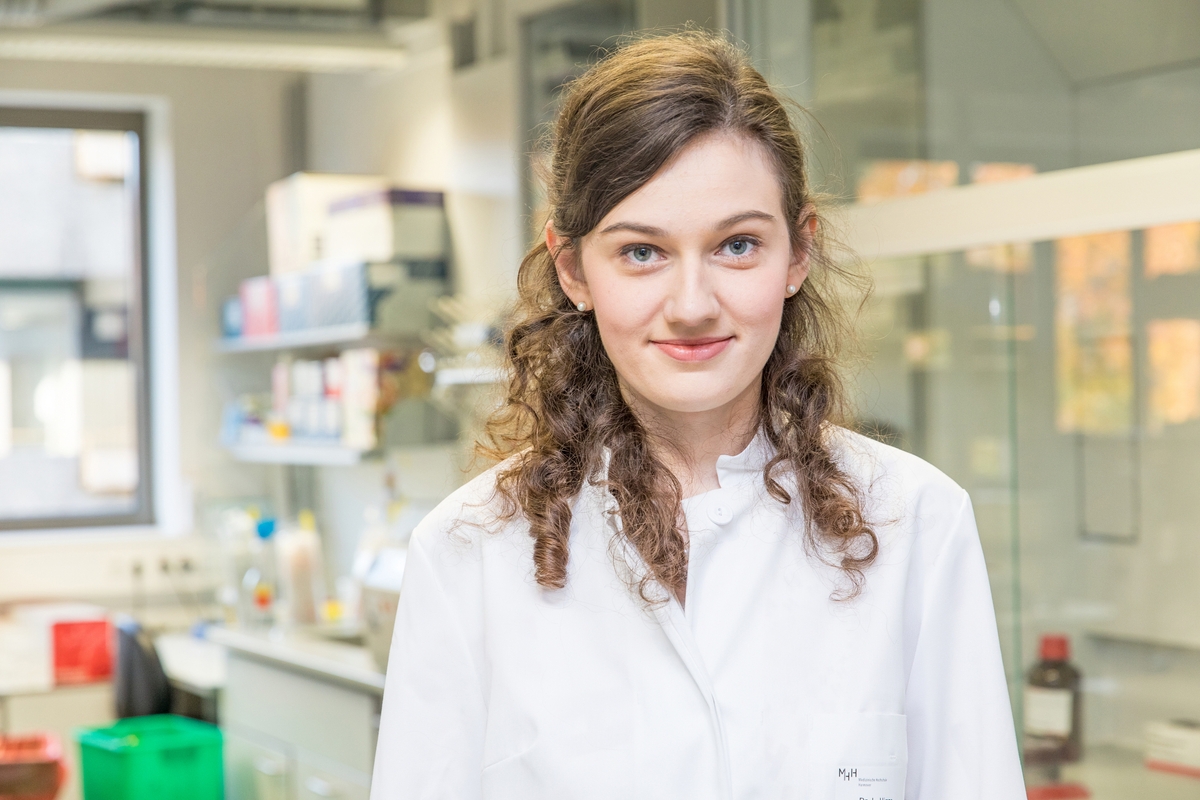
Honoured twice. Dr Laura Hinze. Copyright: Karin Kaiser/MHH
Awards are nothing new for Dr Laura Hinze. In 2021, at the age of 24, she was one of the youngest female physicians ever to receive an award from German Cancer Aid in the Max Eder Junior Research Group Programme and received funding of more than 743,000 euros. The following year, the Paul Ehrlich Foundation honoured her with the Paul Ehrlich and Ludwig Darmstaedter Young Investigator Award, endowed with 60,000 euros, for her contribution to the understanding of signal transmission in cancer cells. And this year, on 12 November, the Fritz Behrens Foundation in Hanover awarded her the Science Prize "for outstanding scientific achievements in the field of cancer research". Dr Hinze will invest the prize money of 30,000 euros in a new fluorescence microscope. She hopes to use it to investigate more closely how cancer cells react actively and dynamically to external influences and thus survive cancer therapy.
"The exciting thing about it is that the unanswered questions are endless"
Just one day earlier, the researcher was honoured by the "Tour of Hope", an annual charity cycle tour in aid of children and young people with cancer in Germany. She received around 90,000 euros for decoding a signalling pathway in resistant leukaemia cells as the basis for new therapeutic strategies. "For me personally, the awards are a very special recognition of my work over the past few years, they give me a boost and are a further incentive for the future," emphasises the 26-year-old, who also became the youngest female physician in Germany to habilitate this year. The financial support also gives her more flexibility, as academic research is dependent on third-party funding. "The exciting thing about it is that the unanswered questions are endless," she enthuses. "The more financial opportunities you have, the more you can research and the better science progresses."
Text: Kirsten Pötzke